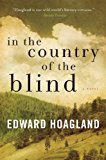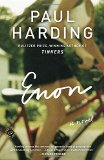Summary | Excerpt | Reviews | Beyond the book | Read-Alikes | Genres & Themes | Author Bio

In previous novels such as The Dogs of Babel and Lost and Found, Carolyn Parkhurst has shown herself adept at mapping treacherous emotional landscapes with skill and sensitivity. Now, in Harmony, she continues to chart complicated emotional territory, all in the context of a suspenseful, structurally sophisticated plot.
Alexandra is at the end of her rope. Despite near-heroic attempts to find treatment, or even understanding and compassion, for her older daughter Tilly, the preteen has been kicked out of multiple schools, and her condition seems to be getting worse, not better, as she gets older. Tilly has a diagnosis, of sorts: PDD-NOS, which stands for "pervasive developmental disorder, not otherwise specified." She's somewhere on the autism spectrum, hyperintelligent and precociously verbal, but also prone to impulsive, even self-destructive behavior and also, especially as she enters puberty, liable to make inappropriate sexual comments about other people, even her own dad.
In her desperation, Alexandra reaches out to a parenting expert named Scott Bean, who has an impressive track record of working with neurodivergent children and their families. At the first informational session she attends, Alexandra feels like someone, at last, understands her: "It's going to be hard to explain this later, she thinks to herself. How to explain that you came here tonight because sometimes you feel like you're being mummified, and that you didn't even realize it until Scott Bean offered you a pair of scissors?" As Tilly's condition deteriorates and Alexandra's faith in Scott grows, eventually the family – including, not only Alexandra and Tilly, but also Alexandra's husband Josh and their neurotypical younger daughter Iris – decide for Tilly's sake to leave their overscheduled, overstimulating life in Washington, D.C., and instead become one of the so-called "core families" at the heart of Scott's new venture in rural New Hampshire, known as Camp Harmony.
It doesn't take long, however, for Alexandra's family (or at least the reader) to begin to suspect that there's something not quite right about Camp Harmony. With increasingly authoritarian rules and discipline, with games like "Werewolf" where Scott trades secrets for game advantages, and with inconsistent stories about Scott's own family history, it's clear that the camp, at least as Scott has conceived it, is maybe not the safest place for Tilly after all – or for the rest of her family.
Parkhurst's novel effectively builds suspense through a relatively complex plot structure. From Alexandra's point of view, we learn about the years leading up to the family's decision to leave DC; from Iris's point of view, we trace the family's arrival at Camp Harmony and what comes after; and from Tilly's dreamy point of view, we draw conclusions about what happened during and after the trauma toward which everything else is gradually building (even if that trauma may not, in the end, be as revelatory as the buildup would have readers imagine).
It's not just about suspense-building, however – as Harmony's story unfolds, Parkhurst also builds her characters' inner lives, revealing Alexandra's combination of self-doubt and fierce love for both her daughters, Iris's combination of envy and protectiveness toward Tilly; and even Tilly's own hazy hopes and dreams for her family, which may be stronger than any of them thought. Parkhurst writes with compassion and sensitivity about the experience of parenting and fervently loving a child drastically different from the one you imagined.
![]() This review was originally published in The BookBrowse Review in September 2016, and has been updated for the
July 2017 edition.
Click here to go to this issue.
This review was originally published in The BookBrowse Review in September 2016, and has been updated for the
July 2017 edition.
Click here to go to this issue.

If you liked Harmony, try these:

by Edward Hoagland
Published 2016
Sixty years after the publication of his first novel, Cat Man, Edward Hogland is publishing his twenty-fifth book at the age of eighty-three.

by Paul Harding
Published 2014
A stunning mosaic of human experience, Enon affirms Paul Harding as one of the most gifted and profound writers of his generation.
A library is a temple unabridged with priceless treasure...
Click Here to find out who said this, as well as discovering other famous literary quotes!
Your guide toexceptional books
BookBrowse seeks out and recommends the best in contemporary fiction and nonfiction—books that not only engage and entertain but also deepen our understanding of ourselves and the world around us.